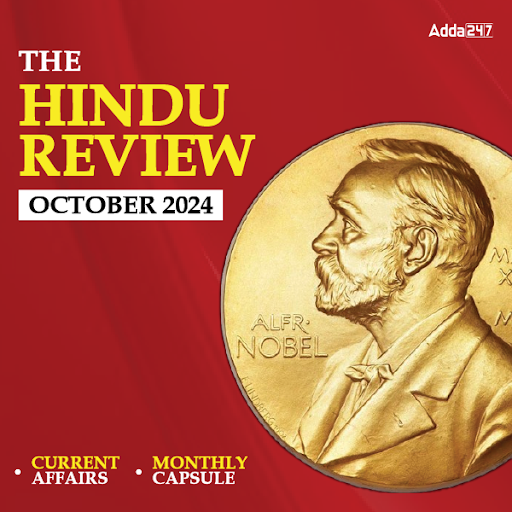Directions (1-5): Fill in the blanks choosing the word that
is most appropriate in the context of the passage.
is most appropriate in the context of the passage.
He was a Hindu and an Indian, the greatest in many generations,
and he was proud of being a (1) and an Indian. To him, India was dear because
he had represented throughout the ages certain (2) truths. But though he
was (3) religious and came to be called the father of the Nation which
he had (4), yet no narrow religious, or national bonds confined his
spirit. And so, he became the great internationalist, believing in the
essential unity of man, and underlying unity of all religions and the needs of (5).
and he was proud of being a (1) and an Indian. To him, India was dear because
he had represented throughout the ages certain (2) truths. But though he
was (3) religious and came to be called the father of the Nation which
he had (4), yet no narrow religious, or national bonds confined his
spirit. And so, he became the great internationalist, believing in the
essential unity of man, and underlying unity of all religions and the needs of (5).
Q1.
(a) Muslim
(b) Christian
(c) Jew
(d) Hindu
(e) Protestant
Q2.
(a) stale
(b) original
(c) immutable
(d) false
(e) insignificant
Q3.
(a) hardly
(b) intensely
(c) not
(d) fanatically
(e) doubtfully
Q4.
(a) left
(b) abandoned
(c) criticized
(d) cheated
(e) liberated
Q5.
(a) humanity
(b) population
(c) hunger
(d) nourishment
(e) satisfaction
Directions (6-15): Fill in the blanks choosing the word that
is most appropriate in the context of the passage.
is most appropriate in the context of the passage.
He brought freedom to India and in that process taught us many
things which were important for us at the time. He told us to (6) fear
and hatred, he told us of unity and equality and brotherhood, of raising those
who had been suppressed, of the (7) of labour and of the supremacy of
things of the spirit. Above all, he spoke and wrote unceasingly of truth in (8)
all our activities. He repeated again and again that Truth was to him God and
God was Truth. Scholars may raise their eyebrows and philosophers and cynics
repeat the old question: what is truth? (9) of us dare to answer it with
any assurance; it may be that the answer itself is many-sided and our limited
intelligence cannot (10) the whole. But, however limited the functioning
of our minds or our capacity for intuition may be, each one of us must, I
suppose, have some limited idea of truth as he sees it. Will he act (11)
to it, regardless of (12) and not compromise (13) what he himself
considers an aberration from it? Will he even in search of the right (14),
compromise with the means of attaining it? Will he subordinate means to (15)?
things which were important for us at the time. He told us to (6) fear
and hatred, he told us of unity and equality and brotherhood, of raising those
who had been suppressed, of the (7) of labour and of the supremacy of
things of the spirit. Above all, he spoke and wrote unceasingly of truth in (8)
all our activities. He repeated again and again that Truth was to him God and
God was Truth. Scholars may raise their eyebrows and philosophers and cynics
repeat the old question: what is truth? (9) of us dare to answer it with
any assurance; it may be that the answer itself is many-sided and our limited
intelligence cannot (10) the whole. But, however limited the functioning
of our minds or our capacity for intuition may be, each one of us must, I
suppose, have some limited idea of truth as he sees it. Will he act (11)
to it, regardless of (12) and not compromise (13) what he himself
considers an aberration from it? Will he even in search of the right (14),
compromise with the means of attaining it? Will he subordinate means to (15)?
Q6.
(a) remove
(b) shed
(c) leave
(d) forego
(e) adopt
Q7.
(a) value
(b) importance
(c) form
(d) dignity
(e) effort
Q8.
(a) connection
with
with
(b) relation
to
to
(c) link of
(d) light of
(e) apart
from
from
Q9.
(a) Few
(b) The few
(c) Some
(d) None
(e) All
Q10.
(a) know
(b) grasp
(c) catch
(d) follow
(e) justify
Q11.
(a) up
(b) upon
(c) on
(d) over
(e) at
Q12.
(a) result
(b) generalizations
(c) conclusions
(d) consequences
(e) impacts
Q13.
(a) to
(b) with
(c) for
(d) about
(e) no word
is needed
is needed
Q14.
(a) end
(b) goal
(c) place
(d) point
(e) process
Q15.
(a) ends
(b) objectives
(c) achievements
(d) consequences
(e) None of
these
these
Solutions
S1. Ans.(d)
Sol. ‘Hindu’ fits in the context of the
sentence correctly.
sentence correctly.
S2. Ans.(b)
Sol. Original- fits in the context of
the sentence correctly.
S3. Ans.(b)
Sol. Intensely- fits in the context of
the sentence correctly.
the sentence correctly.
S4. Ans.(e)
Sol. Liberated- fits in the context of
the sentence correctly.
the sentence correctly.
S5. Ans.(a)
Sol. Humanity- fits in the context of
the sentence correctly.
the sentence correctly.
S6. Ans.(b)
Sol. ‘shed’ fits in the context of the
sentence correctly.
S7. Ans.(d)
Sol. ‘dignity’ fits in the context of
the sentence correctly.
the sentence correctly.
S8. Ans.(b)
Sol. ‘relation to’ fits in the context
of the sentence correctly.
of the sentence correctly.
S9. Ans.(a)
Sol. ‘Few’ fits in the context of the
sentence correctly.
sentence correctly.
S10. Ans.(b)
Sol. ‘grasp’ fits
in the context of the sentence correctly.
in the context of the sentence correctly.
S11. Ans.(a)
Sol. Preposition ‘up’ fits in the context of the sentence
correctly.
correctly.
S12. Ans.(d)
Sol. ‘consequences’
fits in the context of the sentence correctly.
fits in the context of the sentence correctly.
S13. Ans.(b)
Sol. Preposition ‘with’ fits in the context of the sentence
correctly.
correctly.
S14. Ans.(a)
Sol. ‘end’ fits in
the context of the sentence correctly.
the context of the sentence correctly.
S15. Ans.(a)
Sol. ‘ends’ fits
in the context of the sentence correctly.
in the context of the sentence correctly.



 The Hindu Review October 2022: Download ...
The Hindu Review October 2022: Download ...
 Good News, IBPS Clerk Vacancies Increase...
Good News, IBPS Clerk Vacancies Increase...
 IBPS PO Vacancies Increased Upto 5973
IBPS PO Vacancies Increased Upto 5973




